Just down the hall from us, here in the Miller-Dwan Building, some of our region’s most acutely ill patients are recovering. They’re re-learning daily living or speech skills after a stroke, they’re regaining physical strength after a car accident or accident at work, and they’re learning new ways of moving or performing tasks. They may have lost a limb, lost their voice or lost all hope. But through tenacious and diligent rehabilitation care, and the very best in state-of-the-art equipment, many will return to a full life that might include a new normal –– a revised work schedule, a new prosthesis, a wheelchair, a weakness or other barely evident change.
When people think of rehabilitation, they often think about drug and alcohol treatment. They think of people detoxing, sitting around in a circle confronting their feelings and addressing their addiction experiences. It’s important work. But rehabilitation, or rehab, is a broad term. In addition to addiction recovery it can refer cardiac rehab after a heart attack, cancer rehab to address the side effects of chemotherapy or it can refer to work rehabilitation or occupational therapy (a blog for another time). In medicine rehab can refer to any type of comprehensive treatment program. Here at the Miller-Dwan Foundation, it usually refers to the serious physical medical care that’s needed to help someone recover from a serious accident or illness. That’s because we are responsible for its fundraising.
The Miller-Dwan Foundation supports physical medical rehabilitation care with the same diligence and tenacity of its care providers. We are not only committed to doing so, we are compelled by our history. When we were created, we were charged with supporting physical medical rehabilitation not just financially but also in our hearts and souls. We raise funds for the equipment our care providers would otherwise do without, we assure the availability of resources and training, and like now, help push agendas that assure our region can receive the very best in care right here where we live. In doing this work, people often believe we support physical therapy, as well. We do to a point, but on an entirely different level. So, what’s the difference?
Physical therapy is a subset or type of physical rehab. Physical therapy might be a part of a patient’s recovery plan as designed by their physician. It might help build strength, reduce pain and improve range of motion after a stroke, accident or serious illness. It is also often used to treat tendinitis (think tennis elbow), bursitis, neck, and low back pain. Some physical therapists also use ultrasound or acupuncture to treat patients.
So, physical therapy is not exactly the same as physical rehab, and so the Miller-Dwan Foundation doesn’t support it in the same way we support physical medical rehabilitation. When funding is available, the Miller-Dwan Foundation can and does support physical therapy. Sometimes we can purchase weight lifting equipment and other tools to help people heal especially if that physical therapy or therapeutic equipment is accessible or built for those with mobility issues. A recumbent bike is just one example.
Another example is our support of the Minnesota Ballet. Every year, the ballet holds classes for those with physical disabilities. Classes tie directly to each dancer’s physical therapy goals, whether it’s agility or sensory disorders. Physical therapy can take place on site, here at the hospital or at times, in a more engaging location like the ballet.
To learn more about what we support, go to www.mdfoundation.org. You’ll find information about inpatient physical medical rehabilitation and about our POS+ABILITY campaign to raise funds for Polinsky Medical Rehabilitation. If you understand the importance of having the very best physical medical rehabilitation right here when you or your loved ones need it most, consider giving to the campaign. Gifts can be made in memory or honor of a loved one and they can be pledged out over a period of five years. In the end, whether it’s addiction recovery or medical rehabilitation, we hope you never need to go, but if you need it, we’re here for you.
